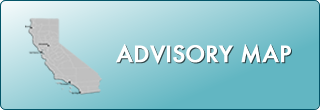Fish Advisory for Gene Wash Reservoir Offers Safe-Eating Advice for Four Species
For Immediate Release
Contact: Amy Gilson
(916) 764-0955
Amy.Gilson@oehha.ca.gov
SACRAMENTO – Today, the California Environmental Protection Agency’s Office of Environmental Health Hazard Assessment (OEHHA) issued a fish consumption advisory for Gene Wash Reservoir, located near the California-Arizona border, in San Bernardino County. The advisory provides safe-eating advice for black bass species, Common Carp, Flathead Catfish, and sunfish species.
OEHHA’s Good Catch California program routinely develops fish advisories so Californians can make healthy choices about the fish they catch in waterbodies across the state.
“Many fish have nutrients that may reduce the risk of heart disease, and fish are excellent sources of protein,” said OEHHA Director Dr. Lauren Zeise. “OEHHA’s guidelines help people eating fish caught in Gene Wash Reservoir to make healthy, informed decisions.”
OEHHA developed these recommendations based on the levels of mercury and selenium found in fish caught from the lake. Because mercury affects brain development, particularly in developing children and fetuses, OEHHA provides advice tailored to two groups based on sex and age.
For Gene Wash Reservoir, OEHHA provides the following safe-eating advice:
Women (18 – 49 years) and children (1 – 17 years)
- May eat the following on a weekly basis:
- Three total servings of Common Carp or sunfish species, or
- Two total servings of black bass species, or
- One total serving of Flathead Catfish.
Women (50 years and older) and men (18 years and older)
- May eat the following on a weekly basis:
- Four total servings of black bass species, or
- Three total servings of Common Carp, Flathead Catfish, or sunfish species.
One serving for adults is an eight-ounce fish fillet, measured prior to cooking, which is roughly the size and thickness of your hand. For small fish species, several individual fish may make up a single eight-ounce serving. Children should eat servings of less than eight ounces. Eating fish in amounts slightly greater than the advisory’s recommendations is not likely to cause health problems if it is done only occasionally, such as eating fish caught during an annual vacation.
A poster with safe-eating advice for Gene Wash Reservoir is available on OEHHA’s website in both English and Spanish. For fish species found in Gene Wash Reservoir that are not included in this advisory, OEHHA recommends following its statewide advisory for eating fish from California lakes and reservoirs without site-specific advice.
Mercury is released into the environment from mining and burning coal. It accumulates in fish in the form of methylmercury, and can damage the human brain and nervous system, especially in developing children and fetuses. Because of this, OEHHA provides a separate set of recommendations specifically for children up to age 17 and women of childbearing age (18 – 49 years).
Selenium is an essential nutrient that is naturally present in the environment. However, high-level exposure to selenium can cause health problems such as hair loss, gastrointestinal distress, dizziness and tremors.
OEHHA’s fish advisory recommendations are based on the levels of contaminants, such as mercury, that persist in the environment and accumulate in fish. They are independent of any shorter-term advisories to limit fish intake due to freshwater or estuarine harmful algal blooms (HABs), which can produce toxins that are harmful to humans. Before fishing, check the California HAB Reports Map to see if there are HAB advisories and always practice healthy water habits.
The Gene Wash Reservoir advisory joins more than 140 other OEHHA advisories that provide site-specific, health-based fish consumption advice for many of the places where people catch and eat fish in California, including lakes, rivers, bays, reservoirs and the California coast. Advisories are available on OEHHA’s Fish Advisories webpage.
OEHHA’s mission is to protect and enhance the health of Californians and the environment through scientific evaluations that inform, support, and guide regulatory and other actions in the state.
###
Related Notices
Fish, Incident Response, Seafood Safety, and Harmful Algal Bloom Section
Sacramento Office
1001 I Street
Sacramento, CA 95814
Phone: (916) 324-7572
Fish@oehha.ca.gov

